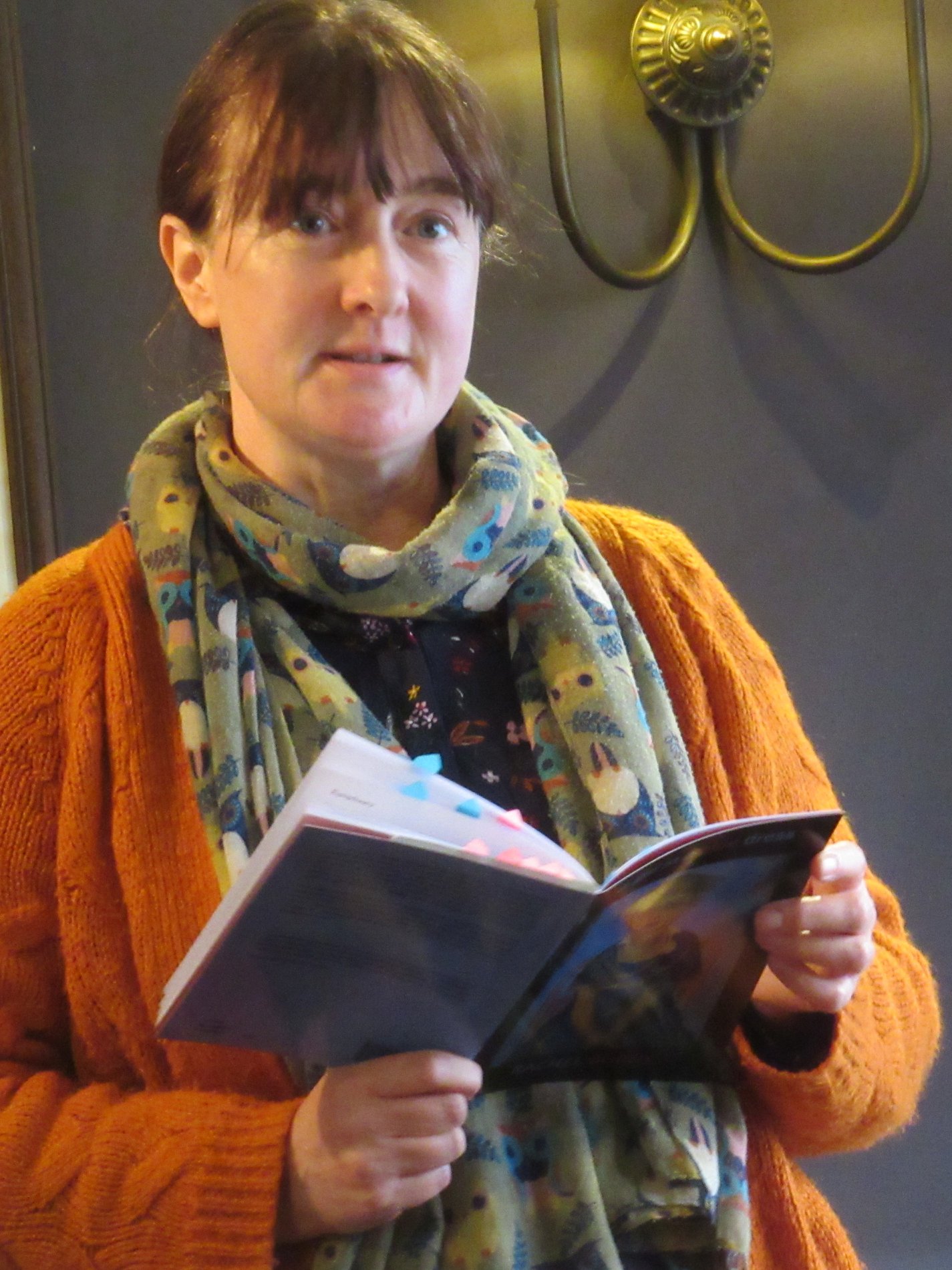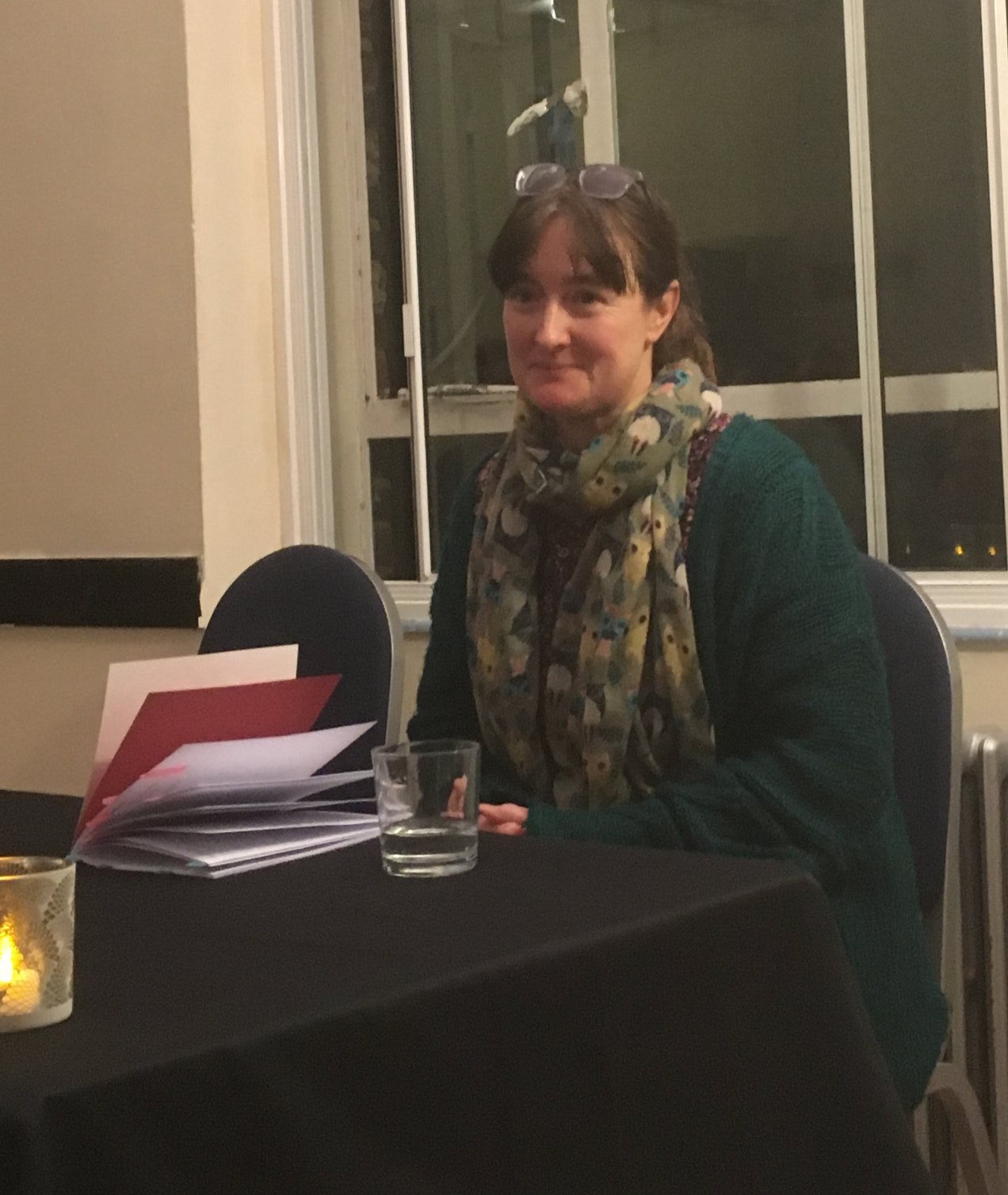Bio: Rachel Burns was born in Newcastle- Upon Tyne and grew up in a small rural village in County Durham. She completed a screenwriting talent scheme with ITV and Northern Film and Media in 2012. Her screenplays have been longlisted in several BBC Script Rooms and various playwriting competitions. She is an alumnus of the 2018 Jerwood/Arvon Mentoring Programme, mentored by the playwright Tim Crouch. Her play The Graffiti Bunkers was performed at The Free Word Centre, London. She has short stories published in Mslexia, Here Comes Everyone and forthcoming in the Signs of Life Anthology. Her YA novel was showcased in the TLC/A.M Heath anthology, 2019. Rachel Burns’ poetry is widely published in literary magazines, recently in The High Window, Crannog, Poetry Salzburg Review, Ink, Sweat & Tears and forthcoming in The Blue Nib, Dreich and The Seventh Quarry Poetry. Rachel was placed in poetry competitions Keats-Shelley Poetry Prize 2017, Primers Four 2018 and runner-up in the BBC Poetry Proms 2019 competition, her poem St Petersburg, was broadcast on BBC Radio 3. Her poetry pamphlet A Girl in a Blue Dress is published by Vane Women Press.
RLN: Who were your early influences that inspired your poetry writing?
RB: Growing up my Dad played poetry cassette tapes, mainly Dylan Thomas, Under Milk Wood around the house and in the car, so I was effectively brain washed. I read voraciously as a child and really loved Lewis Carroll’s poetry in Alice in Wonderland. In my 30’s I signed up for a WEA creative writing class and the poet J. S Litherland introduced me to some fantastic poetry—I remember reading a poem by Barry MacSweeney, Horses in Boiling Blood or The Fenwick’s Third Floor Hair-do and it blew me away.

RLN: What themes are your favourite?
RB: I don’t think about it too much while I’m writing—I like to surprise myself! There are recurring themes of nature, childhood and motherhood in my poems, but I also write about social inequality.
RLN: Apart from poetry, do you write other genres?
RB: Yes—I love writing in different forms and I think they feed into each other. A poem can be a spark for a short story or a play. Currently, I’m line editing my YA novel in preparation to send out to agents.
RLN: In your view what would you say makes great poetry?
RB: Something you want to return to time and time again. Since the lockdown I’ve found myself re-reading Philip Larkin, Emily Dickinson, Elizabeth Bishop and the Bloodaxe Staying Alive anthologies.

RLN: Your debut pamphlet ‘A girl in a blue dress’ has enjoyed rave reviews, what inspired the pamphlet and where can readers buy it from?
RB: Thank you! A huge amount of work went into the pamphlet, from the cover design to the order of the poems. It was a team effort with Vane Women Press, my amazing publisher who champion the work of women living in the North-East of England.
Here is the blurb from the book to give people a flavour –
Just as Lowry paints scenes of working class life around him, Rachel Burns captures the very texture of life in Durham’s hinterland of ex-mining villages, the scent of wild garlic in woods, shots of the grouse hunt, chat of pigeon fanciers. She even echoes Lowry’s chalk-white skies. But her imagination is defiant. She’s a misfit, reading the TLS in the Library, and observer of her former self, A Girl in a Blue Dress, who wanders off. Is she Okay?
Her poems risk bleakness but deliver a dark baroque humour and play with household tensions as a child, wife, mother. She’s survived the hard way. It’s a triumph that the colour, drama and tenderness of her voice have survived with her. Her poetry is a brilliant interlacing of innocence and experience with a thread of disquiet always present.
You can buy the book direct from my website here or through The Poetry Book Society here
RLN: What has been the major highlight of your writing journey?
RB: It’s hard to say one major highlight. I’ve been lucky to have had so many great opportunities and met some fantastic creative people on my writing journey. The 2018 Jerwood/Arvon Mentoring Programme was a major highlight—having that level of investment in you as a writer for a whole year is phenomenal.
RLN: Your writing has taken you far and wide, which stages have you graced that would forever be etched in your heart?
RB: My poetry pamphlet launch was at the famous Colpitts Poetry, Durham and the audience were fantastic, so warm and lovely, it was a special evening. I read at The National Poetry Library from the anthology, Poems for Grenfell, and it was a very humbling moving experience. Just before the lockdown, I read at Words on the Wall, a new poetry event in Hexham, again a welcoming and appreciative audience.

RLN: Which books have you read this year that left you wowed?
RB: Ilya Kaminsky, Deaf Republic; Jacqueline Saphra, Dad, Remember You Are Dead; Raymond Antrobus, The Perseverance; Jericho Brown, The Tradition; Julia Webb, Threat; Deborah Alma, Dirty Laundry; Terence Hayes, American Sonnets for My Past and Future Assassin; Ishion Hutchinson, House of Lords and Commons; Rachael Allen, Kingdomland and Sophie Collins, Who Is Mary Sue?
RLN: You have enjoyed great success in your writing journey, do you follow any set of routine and what advice would you give to newbie poets and writers who are just starting out on this journey?
RB: Thank you! I think it’s important to have your own space if you can. I have a desk in the corner of my bedroom and the shelves are lined with poetry, plays and novels. Libraries and cafes are good places to write too. I try to write every day even if it’s a line or two or reading through a draft. There is so much advice out there for newbie poets and writers online—
BBC Writersroom click here for script.
Write a Play click here for playwriting.
Toby Litt on wordpress click here for prose
Lunar Poetry Podcasts click here for poetry
If you buy one poetry guide – make it, How To Be A Poet, a twenty-first century guide to writing well by Jo Bell and Jane Commane.
I’d recommend a writing residential with Arvon (grants available) and Poetry School also offer discounts for their courses. Look out for creative writing courses in your local community as they tend to be more affordable.
RLN: Robert Burns was a national Icon, what would you want Rachel Burns to be remembered for by the upcoming generations?
RB: Good question! Really hard to answer, as not something I’ve given much thought. I guess if I’m remembered for my poetry it will be no bad thing!

Interesting